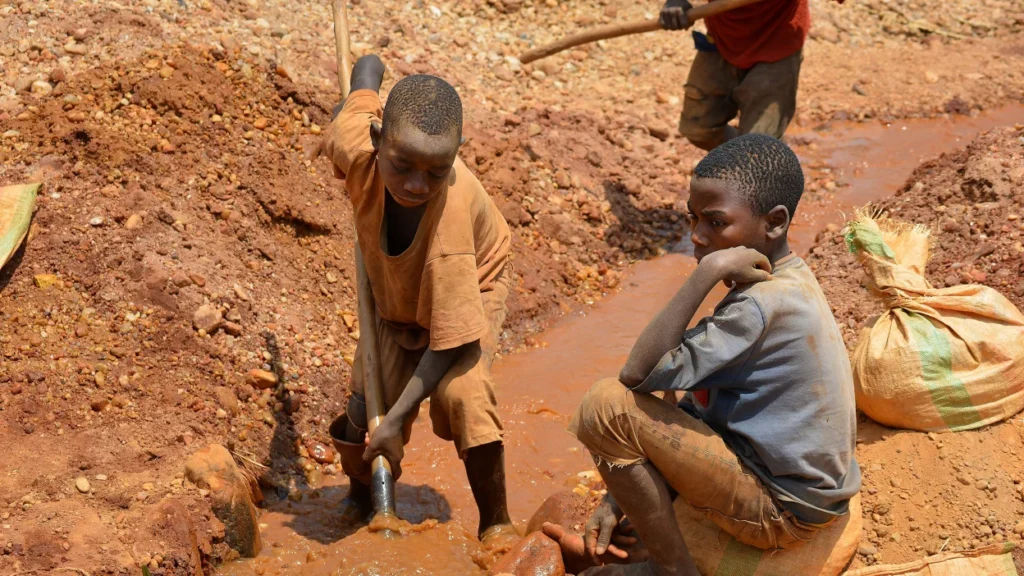Amidst the activities of the bustling streets, ever busy roads and vibrant culture of Nigeria, a dark shadow looms over the country— the ever present tide of child labour and abuse that is not getting the proper attention of governments, communities and families alike. As reports of child abuse cases continue to climb, it is clear that urgent actions are needed to protect the innocent and vulnerable in our society.
According to the National Bureau of Statistics (NBS), there were an estimated 8.7 million child labourers in Nigeria in 2019, representing a staggering 20% of all children in the country. Many of these children are forced to work in the agricultural sector, particularly in the production of cocoa and other crops.
Four years after, in commemoration of the 2023 World Day Against Child Labour (WDACL), a statement by the Director, Press and Public Relations at the Federal Ministry of Labour and Employment, Olajide Oshundun, estimated that over 43 per cent of Nigerian children aged between five and eleven years were involved in economic activities, a further increase in the number of child labourers.
As much as we reel out figures to expose the degrading situation, regretably, with each passing day, more and more children are falling victim to neglect, violence, and exploitation. From the crowded streets to the cramped living conditions, the nation’s most vulnerable residents are facing unimaginable hardships and many guardians, more than parents have turned children under their care to “go-to-servants”.
The issue of child labour and abuse is not new in Nigeria as a nation or the world at large. However, a constant reminder of its devastating effect on the life of the victims and families, will do us all a lot of good.
In many cases, the victims of child labour are either street or traffic hawkers, house helps, child farmers, or builders who work in construction sites with many starting these strenous exercises between the tender ages of seven and ten – what burden on minors who didn’t ask to be brought into the world.
Expectedly, when many of these perpetrating parents/guardians are quizzed on this bothering subject, they are quick to cite conditions of poverty, hunger, lack plus their inability as adults to do these activities as reasons for sending out their wards.
Many of these child labourers are therefore in most cases deprived the right to a good education, a proper enjoyable childhood and family life, albeit it is no fault of theirs that they were born.
What is more? While some become victims of mishaps, others eventually take to petty crime and other social vices capable of ruining their destinies. Sadly, this is the same case in almost all the cities and towns in Nigeria where child labour and abuse thrive today.
We can go on and on picking apart the obvious demerits of the unfortunate practice, but more importantly will be if solutions are profered by people of goodwill and taken with seriousness by the government and organizations with keen interest and genuine concern.
One key strategy in combating child abuse is education. By teaching children, parents, and caregivers about their rights, boundaries, and safe practices, we can empower them to recognize and report abuse. Schools, community centers, and religious institutions can all play a crucial role in educating the public and creating a culture of protection and prevention.
Very importantly too is the fact that couples, especially those who live below the average income line need to exercise discipline in their rate of procreation as many of these cases stem from the inability of many parents to cater for their children, further giving rise to a need for the interventiin of a guardian often times.
Another vital approach is to strengthen the social support systems available to families in need. By providing access to counseling, therapy, and other social services, we can help address the root causes of abuse and support families in crisis.
Additionally, creating safe spaces for children to seek help and protection can offer a lifeline to those experiencing abuse. One such initiative is the establishment of safe spaces for children to seek refuge and guidance. These centers offer counseling, shelter, and resources to help young victims of abuse heal and rebuild their lives. Additionally, workshops and training sessions are being held to educate parents, caregivers, and the community at large on the importance of child protection and welfare.
Also, as individuals who live in different communities, it will be patriotic of us to speak up when we notice acts of human rights violation and child abuse going on around us. The idea of “minding your business” many times does more harm than good, especially in cases as delicate as this.
As we confront the sobering reality of child abuse in Nigeria, we must come together as a community to take a stand against this pervasive issue. By raising our voices, advocating for change, and supporting those in need, we can work towards a future where every child is safe, protected, and cherished by championing grassroots initiatives to government-led programs, raising awareness, providing support services, and holding perpetrators accountable.






